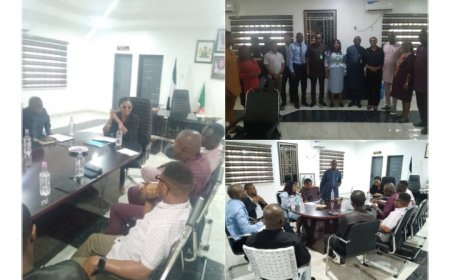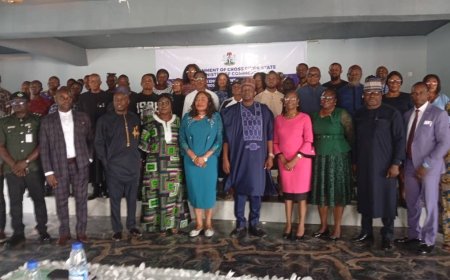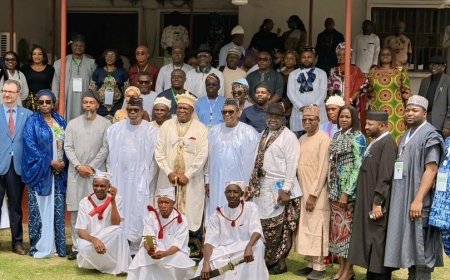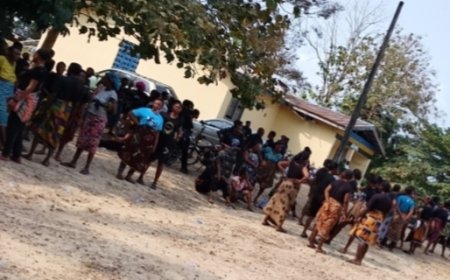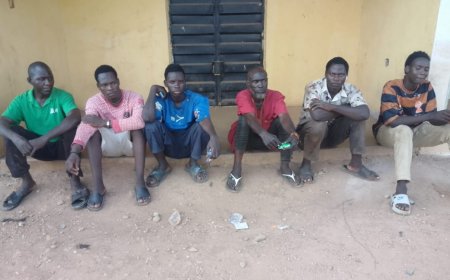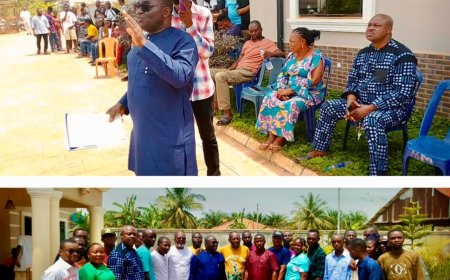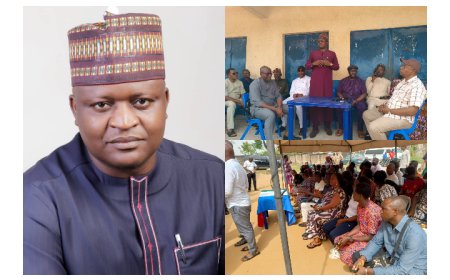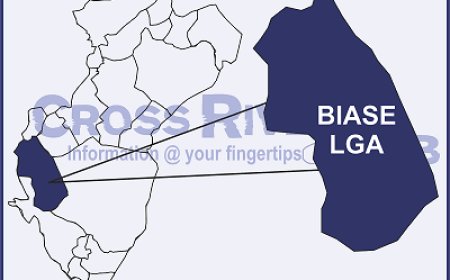Abi LG Chairman Joins MAMII Drive as FG, Cross River Tackle Maternal, Neonatal Deaths
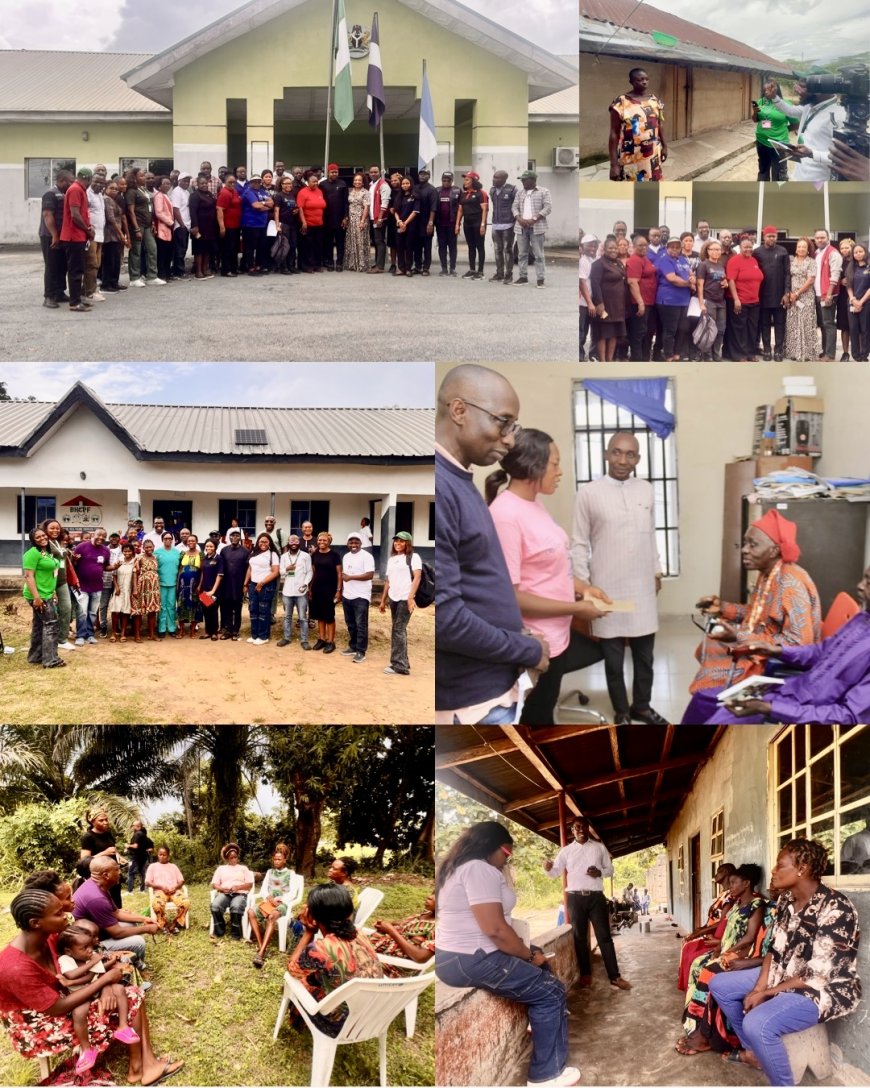
By Ebi COLLINS
The Chairman of Abi Local Government Area, Hon. Egbala Bassey, has lauded the Federal Government and the Cross River State Government for selecting Abi as a focal point in the implementation of the Maternal and Neonatal Mortality Reduction Innovation Initiative (MAMII), pledging his council’s full support toward the success of the programme.
Hon. Bassey gave the assurance when a team of MAMII stakeholders paid him a courtesy visit at the Abi Local Government Headquarters in Etigidi before proceeding on field assessments to various communities under the ongoing activation exercise.
He described the MAMII initiative as “timely, people-focused, and directly beneficial to women and children who have long borne the brunt of preventable maternal and neonatal deaths,” stressing that the intervention aligns with his administration’s priority on healthcare delivery and community well-being.
“This intervention could not have come at a better time. We are ready to work with the State and Federal Governments, and all partners involved, to make sure the lives of our mothers and children are safeguarded,” Hon. Bassey affirmed.
Day Two of the MAMII activation, held on Tuesday, October 7, 2025, saw five teams of stakeholders visit Adadama, Ediba, and Ngarabe communities in Abi, as well as Ekori and Ugep in neighboring Yakurr Local Government Area. Each team returned to Calabar with encouraging feedback from the communities visited, reflecting growing awareness and enthusiasm for the initiative.
Speaking to newsmen after the assessment visit to the Primary Health Centre, Adadama, Dr. Alexander Dachung, Head of the Coordination Unit, Family Health Department, Federal Ministry of Health, said the project seeks to identify and address community-specific causes of maternal, newborn, and child deaths, which remain a major public health concern in Nigeria.
“We are here to learn directly from the communities about the root causes of maternal and neonatal deaths. The government is determined to crush maternal and child mortality by combining data, local insights, and targeted interventions,” Dr. Dachung explained.
He observed that although Abi previously recorded a high burden of maternal deaths, recent data indicate significant progress due to improved uptake of antenatal care, increased facility-based deliveries, and the availability of maternal health incentives such as Mama Kits and free medical commodities.
“More women are now choosing to deliver in health facilities instead of at home. With these improvements, we expect a drastic reduction in maternal and newborn deaths within the next one or two years,” he added.
Also speaking, Dr. Iniofion Inyang of the Sector-Wide Approach (SWAp) Coordinating Office and member of the MAMII team, noted that Cross River State was identified as one of the states contributing substantially to Nigeria’s maternal and neonatal mortality burden.
“Data analysis revealed that Abi Local Government Area contributes to the national burden of over 50 percent of maternal and neonatal deaths. That is why we are here — to engage with healthcare workers, community leaders, and pregnant women, and to gather context-specific data that will inform practical and sustainable solutions,” Dr. Inyang explained.
She added that the activation process involved field assessments, key informant interviews, and community engagements designed to generate insights for a context-driven action plan that would guide future interventions.
At the Etani community in Adadama Ward, a pregnant woman, Felicia Lawrence, commended the MAMII intervention, saying it has begun rebuilding women’s trust in formal healthcare facilities.
“Initiatives such as MAMII are helping women to trust the healthcare system again. Many of us now prefer going to hospitals rather than unqualified attendants or spiritual homes,” she said.
Lawrence urged both the Federal and State Governments to address the challenges identified by the visiting teams, emphasizing the need for sustained interventions to curb maternal and child deaths in rural areas.
From all indications, the communities of Adadama, Ediba, Ngarabe, Ekori, and Ugep have welcomed the MAMII project with enthusiasm. Meanwhile, the Cross River State Government has reaffirmed its commitment to sustaining partnerships with the Federal Government and development partners under the MAMII framework, targeting a 30 percent reduction in maternal and neonatal mortality by the year 2030.





